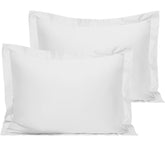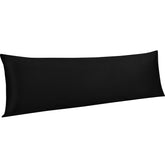What to eat to improve the symptoms of insomnia?
One third of a person's life is spent in sleep, five days without sleep is life-threatening, how long has it been since you had a good night's sleep? The pain caused by insomnia is only known if you have experienced it.
In order to get rid of insomnia, the first step is to fix the circadian rhythm, or biological clock, which is influenced by many factors, including: genes, light, hormone balance, physical activity and diet.
Melatonin is secreted around 9:00 p.m., which puts a person to sleep and weakens nerve function, allowing the brain to rest and heal. Once in a sleepy state, the body releases prolactin and growth hormone, and the body relies on burning fat for energy and reducing inflammation during sleep.
At 4:30 a.m., your body temperature drops to its lowest point
At 6:45 a.m., your blood pressure will be at its highest point
At 10:00 a.m., it reaches its most refreshed state
It's worth stating that sleep types vary greatly on an individual basis, and going to bed early and waking up early may not be right for everyone. Finding your own biological clock, your own comfort is most important, as long as you have a high quality of sleep, better hormonal balance and the ability to cope with stress is the right biological clock for you.
Foods that are good for sleep
As we said above, food can affect the biological clock, so to improve the biological clock and promote sleep must also have food assists. There are many foods that are good for sleep, I list a few common foods to give you some reference.
1 almonds, pistachios, walnuts

Almonds, pistachios and walnuts and other nuts, minerals, vitamins, good fat, rich in nutrients, can effectively regulate melatonin levels and improve the quality of sleep.
Almonds are also a good source of the mineral magnesium, only about 30 grams per day, can provide 19% of the daily requirement of magnesium. Consuming adequate amounts of magnesium can also help improve sleep quality, as magnesium reduces inflammation and also helps reduce levels of the stress hormone cortisol, which in excess, can be anxiety-producing and stressful, which is not conducive to sleep.
2 kiwifruit

Kiwifruit is extremely nutritious, it contains a lot of fiber and carotenoids, which are good for the digestive health of the body, as well as antioxidants, which reduce inflammation.
Kiwifruit is extremely high in vitamin C, rich in potassium, and contains serotonin, which is effective in improving sleep.
In a four-week study in which 24 adults ate two kiwis an hour before bedtime each night, the study found a 42% increase in the rate of falling asleep over participants who did not eat any food.
In addition, participants were 5% less likely to wake up in the middle of the night, and their total sleep time increased by 13%.
Some researchers also claim that kiwi is one of the best foods to eat before bedtime when it comes to improving sleep quality.
3 Fat-rich fish

Salmon, tuna, trout and mackerel, all very healthy and nutritious fish, have higher levels of vitamin D and tryptophan (an initial form of serotonin) compared to other fish, which helps improve sleep quality.
Tuna, halibut and other fish are rich in vitamin B6, which is a great source of melatonin and serotonin.
4 Cherry juice

A study at the University of Pennsylvania showed that cherries, especially tart cherries, promote the production of melatonin in the body, allowing people to fall asleep quickly and improve the quality of sleep.
Also, a study at Louisiana State University found that drinking about 200ml of cherry juice daily over a two-year period increased sleep time by nearly 90 minutes in older insomnia patients.
5 Pumpkin seeds

There are many people who like to eat pumpkin seeds and always like to get high on a few after tea. It not only has a great taste, but also helps with sleep.
Studies have found that the magnesium content of pumpkin seeds is very high, a handful of pumpkin seeds contains 100mg of magnesium (the recommended daily intake is 420mg).
As we said before, the mineral magnesium helps sleep, so, before going to bed can be moderately high in a few grains, amusement, better sleep, of course, sunflower seeds and flax seeds can also be substituted for Oh.
In addition to those mentioned above, folklore bananas, milk and pineapple also help sleep, but there is not yet sufficient scientific basis. In order to give full play to the role of the above-mentioned foods in sleep, we better eat 2-3 hours before bedtime. It is not recommended too early or too late, too early to play a role, too late is counterproductive, may exacerbate insomnia Oh, because eating at night, is not conducive to sleep.
Foods that are not conducive to sleep
There are many foods that help sleep, there are also many foods that can have a negative impact on sleep, let's talk about what foods affect our sleep?
1 Excessive alcohol
The alcohol mentioned here includes all kinds of alcohol. Drinking large amounts of alcohol increases the metabolism during the night and forces us to wake up.
One study found that a glass of whiskey or vodka before bedtime increased women's waking time during the night by 15 minutes and decreased overall nighttime sleep by 19 minutes, reducing sleep quality.
And alcohol can make snoring worse, which is not a good thing for the partner sleeping next to you, either.
I have to mention that while both red and white wine contain melatonin, which helps with sleep, too much alcohol, which disrupts sleep, counteracts the positive effects of the hormone.
2 Coffee at night
If you always have trouble sleeping, never drink coffee before bedtime. Coffee contains caffeine, a central nervous stimulant that leaves people in a state of euphoria for a long time.
Of course, people's sensitivity to caffeine varies and is also related to the amount of intake, so it is better to drink less coffee at night, or not at all.
3 spicy, stimulating food
For example, hot pot and curry, but not only these, spicy and stimulating foods should be eaten sparingly. An Australian study showed that young people who added mustard or chili sauce to their dinners had difficulty falling asleep and the quality of sleep decreased.
In addition, spicy and stimulating food may cause heartburn, some people every time after eating hot pot, or eating too much spicy oil, the stomach is burning and can not sleep for a long time.
This varies from person to person, some people's stomachs are very tolerant of chili peppers, but, in general, it is better to pay proper attention at night and not eat too much chili peppers.
4 Food with high protein content
Yes, consuming a lot of protein at night may affect the quality of sleep. Chicken, or any type of protein, consumed at night can be detrimental to sleep. Generally, when you sleep at night, the body's metabolic rate slows down by about 50%.
If we eat a lot of protein, our body's digestion will become slower and when we rest at night, instead of focusing on sleep, our body will focus on digestion, which will make our quality of sleep much worse.
So, if protein affects your sleep, try to reduce some at night. Many people also lose sleep because they eat too much food at night, they must grasp an appropriate degree and choose the right amount of food for themselves.











